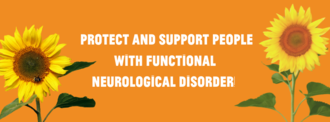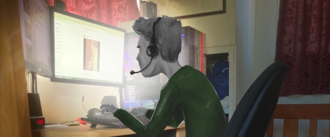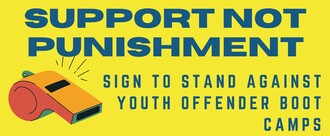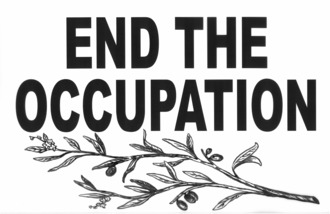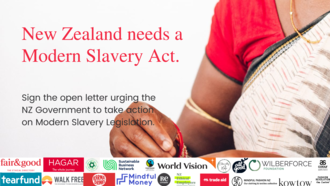-
Withdraw NZ from US operation supporting Israel’s war on GazaWhat is this operation? The New Zealand Government has deployed New Zealand Defence Force (NZDF) personnel to support the US and UK-led Operation Prosperity Guardian. The Operation was launched in December 2023 after the Houthi Movement in Yemen blockaded access to Israel via the Red Sea and attacked ships heading to or associated with Israel in response to Israel’s war on Gaza and US support for it.[2] The Houthis have said they’ll stop their attacks as soon as Israel agrees to a ceasefire, end its war crimes in Gaza and allow humanitarian aid to reach the people of Gaza.[3] As the name of the operation suggests, the US, UK, New Zealand and others claim to have launched this operation to protect shipping. Yet this ‘concern’ for maritime law and the ‘free flow of goods’ does not extend to Israel’s illegal sea (air and land) blockade of Gaza that has been going on since 2007. How is New Zealand involved? In January 2024 the Prime Minister, Minister of Defence, Judith Collins, and Minister of Foreign Affairs, Winston Peters, announced that New Zealand was deploying six members of the New Zealand Defence Force to join the US and UK-led operation.[4] At the time the Prime Minister said the deployment would conclude no later than 31 July 2024, even when directly asked if the deployment would be extended. But on 12 July the Minister of Defence and Minister of Foreign Affairs announced that the deployment would be extended till January 2025.[5] Exactly what NZDF personnel are doing is not entirely clear, but the Prime Minister has said they would provide “precision targeting” through gathering intelligence and the Defence Minister said they would assist in targeting Houthi bases that were involved in attacks on vessels.[6] US-led airstrikes targeting Houthis have killed a number of people and wounded many others.[7] Why are we opposed to NZDF involvement? 1. It aligns NZ with US militarism and Israeli war crimes In joining this US and UK-led operation New Zealand is not only involving itself in war in the Middle East, but it is aligning itself with the US and its support for Israel’s war on Gaza. Israel is currently committing genocide on the people of Gaza, and is perpetuating numerous other war crimes across Palestine. Over 38,000 people in Gaza are officially reported to have been killed, over half of them women and children, but experts have suggested the death toll will be significantly higher - estimated at 186,000 or more - taking into account thousands of people buried under the rubble and indirect deaths as a result of the destruction of health, food distribution and other infrastructure. [8] Israel is also blocking adequate humanitarian aid from entering Gaza, including desperately needed medical supplies and food for the population who are currently starving. The US is enabling Israel to continue its bombardment of the trapped population in Gaza by sending billions of dollars in military aid. 2. Israel is violating international law The International Court of Justice (ICJ) has ordered Israel to cease its activities and comply with its obligations under international law. The International Criminal Court is considering issuing warrants for arrest of the Israeli Prime Minister and Defence Minister for war crimes. Various bodies of the UN, most recently the ICJ’s advisory opinion[8], have declared that Israel is in breach of the most fundamental norms of international law, including operating an apartheid regime in the Occupied Palestinian Territories. The ICJ has said all States - that includes NZ - have obligations not to support and to prevent Israel's breaches of international law. 3. NZ Government's actions are hypocritical and risky Despite the fact that Israel is flagrantly breaching international law in the most horrific and inhumane way, our Government is putting its military might into maintaining international law rules that enable commercial shipping, and allege it is the Houthis who are disregarding international law, peace and stability. Rather than contributing to the pursuit of peace in the region, the Government has involved the NZDF in a situation which is at risk of expanding into wider regional conflict in the Middle East. 4. There is no democratic mandate The Government’s actions in deploying the NZDF do not represent the views and values of New Zealanders and the Government has no democratic mandate for this action. New Zealanders are proud of our track record maintaining independent foreign policy and standing up for equality, human rights and justice against the apartheid regime in South Africa.This Government is departing from those traditions and putting New Zealand on the wrong side of history, without giving New Zealanders a say. We don’t want the NZDF to be involved in a deadly military operation in the Middle East that has no end date. Rather than supporting Operation Prosperity Guardian, New Zealand should be putting all its efforts into ensuring the Israeli Government stops committing war crimes, ends its illegal occupation and apartheid policies imposed on the Palestinian people. References [1] Fran O’Sullivan. “Winston Peters’ Houthi Red Sea move brings NZ and the US closer” NZ Herald. 6 Jan 2024. [2] US-led coalition warns Houthis of ‘consequences’ after Red Sea attacks. Al Jazeera. 3 January 2024. [3] Who are the Houthis? A simple guide to the Yemeni group. Al Jazeera. 12 January 2024. [4] New Zealand deploying NZDF team to protect Red Sea shipping, 23 January 2024. [5] NZDF’s Red Sea deployment extended, 12 July 2024. [6] New Zealand to deploy Defence Force to Red Sea, 23 January 2024. [7] US and UK air strikes hit Yemen, Houthi-run TV reports, 7 June 2024. [8] Gaza toll could exceed 186,000, Lancet study says, 8 July 2024. [9] ICJ Advisory Opinion - On the legal consequences arising from the policies and practices of Israel in the Occupied Palestinian Territory, including East Jerusalem, 19 July 2024.6,185 of 7,000 SignaturesCreated by Te Kuaka, Peace Action and Justice for Palestine
-
Protect and support people with Functional Neurological Disorder!Functional Neurological Disorder is becoming a fast growing condition in New Zealand. While no one person is born with it, many have come to be diagnosed with FND with growing global awareness of this condition, its poor reaction to mrna vaccines, the lack of helpful and preventative treatment and breach of the code of patient rights. FND is a disabling and devastating condition. Symptoms range from a faint, to seizures, paralysis, pain, immobility to say a few, and that comes with a lot of psychological damage to one's self esteem. There are many cases of delayed or mistreatment from lack of understanding, including being locked away from family homes, being accused of being crazy, being told we deserve it, not being treated, gaslit, and difficult to get help, or having to wait years for proper assessment. For 37 years I believed I was epileptic and had fibromyalgia. FND was not widely considered at all then. This meant decades of mismanagement, mis-medication, career paths denied, and absolutely no treatment for the real condition. Because of those consequences, I have been - avoided in the street - as I was weaving from medication, yelled at by doctors because they did not know what was going on, accused of not taking my medicines, which I have always taken religiously. I have been subject to abusive situations because of the effects of the medications I did not need. Personally, I have been waiting for nearly 3 years to have the acknowledgement that I even require treatment, and the only reason it has happened THAT QUICKLY is because of the consistent follow up and bringing things to ACC attention. It is exhausting, stress inducing, and causes further harm to FND clients. While I have been compliant and have undertaken every possible process, I am still here, waiting for treatment, 3 years after diagnosis, 43 years after it started. As such, I call on the Ministry of Health, the Ministry of Disabled People, Ministry of Social Development and ACC to take these three actions. 1. They must adhere to the Code of Health and Disability Services Consumers' Rights in every manner regarding FND patient's, diagnosis, treatment and handling by all related staff, including management of patient records and expunged files or diagnosis, and supervision of medical applications used by practices for mismanagement and breach of patient privacy by mis-sharing patient information. 2. They must collaboratively discuss and compile treatment plans and support services for patients in a timely manner so as to prevent further chronic harm. 3. Inclusion of FND in its language and education policies, inclusive of medical staff, acc staff, social workers, and educators of medicine, to better facilitate healthy discussion and further beneficial research around this condition. There is no cure for FND, and while things continue to get worse at an alarming rate, the care in New Zealand is not keeping up. If the Ministry of Health, Ministry for Disabilities and ACC collaboratively create an early treatment plan it could help prevent FND from becoming chronically worse and in some cases, may even reduce symptoms for a short period of time. I want to see the Government put its people first. We deserve a good quality of life, with dignity and mana and with whanau around to support us. Not be treated like a burden and excluded from jobs, community and even medical care. I want to see our future moko be treated with respect and dignity when going into the medical system. These three steps can lead us towards a positive sustainable change within the health care system that will benefit all people living with FND. Join us by making the health care system more just for everyone! Sign this petition and share it with friends and family. Further reading: https://www.ninds.nih.gov/health-information/disorders/functional-neurologic-disorder. www.fndaware.nz bFM Interview https://95bfm.com/bcast/get-action-protect-and-support-people-with-functional-neurological-disorder-w-keremia-tairua-9th170 of 200 SignaturesCreated by FND AWARE
-
Massey University: Divest from GenocideIt has come to our attention that Massey University is complicit in genocide. The Massey University Foundation has $64 million invested in managed funds, of which a spokesperson has confirmed $7,105 has been invested in Israeli Government Bonds over the last three months. Within those three months, the Israeli government has bombed schools, attacked health infrastructure, fired missiles into refugee camps, and prevented aid from reaching Gaza, weaponising famine and disease against the people of Palestine. Even prior to your investment, Israel was already engaged in a programme of genocide. As of 6 June 2024, the World Health Organisation reported over 36,000 Palestinians killed— including more than 13,000 children—with more than 10,000 reported missing under rubble and 83,000 injured. Mass graves have been found outside Palestinian hospitals. Even these statistics are being reported as incomplete. These atrocities follow years of dispossession and systematic apartheid inflicted on the Palestinian people by the state of Israel. As of 2022, the people of Gaza already faced “inadequate access to clean water, sporadic electricity provision and [were] without a proper sewage system. Two thirds of the population lived in poverty.” This level of economic and infrastructural destruction at the hands of Israel meant 80% of the population were forced to depend on international aid to survive. Despite UN Resolution 194’s affirmation of Palestinian refugees’ right to return to their homeland, more than 6 million Palestinians live today in the diaspora, barred from their ancestral home. This Nakba (Catastrophe) has been ongoing for more than 76 years. Palestinians have been systematically slaughtered and expelled from their lands to make room for the expansion of illegal Israeli settlements, resulting in a settler-colonial system of oppression “maintained by Israel with the support of the international community.” This is what your investment condones and supports. Massey University, you are complicit in crimes against Gazans, against Palestinians, and against humanity. We, your students, including Palestinian students, pay you to receive an education we wish to be proud of, and you have used that money to help pay for genocide. As academics and university administrators from Gaza have reported after 8 months of incessant bombing, Palestinian civic infrastructure, schools, hospitals, libraries, museums and cultural centres - built by generations of Palestinians - currently lie in ruins. More than 5,479 students, 261 teachers, and 96 university professors have been killed alongside the destruction of all 12 universities in Gaza. Just as you have been cutting courses and jobs across your three campuses for ‘lack of funds,’ you have also been guilty of funding scholasticide in Gaza. Neither outrage, nor disgust are able to convey the full extent of how we feel. We make our demands on the back of a string of student activism across Aotearoa. On the 23rd of May, students from all three campuses joined university students across the country in the National Students Rally for Palestine. On the 14th of June, Massey University students at the Pukeahu campus painted over the walls of the Fine Arts block in protest of Massey University’s lack of stance against the prevailing genocide, leaving the following words addressed to staff: “The students have been asking. Disclose. Divest. Declare. Massey has refused to take a stance. And the staff have remained silent. Massey has defined their response as ‘appropriate’. There is nothing appropriate about ignoring the incomprehensible suffering of Palestinians.” We note the hypocrisy of your investment in Israeli Government Bonds as a signatory of both the UN Sustainable Development Goals, which commits to “Zero Hunger” and “Peace, Justice and Strong institutions,” and the UN Principles for Responsible Investment, which commits to better aligning investment activities with society’s environmental, social, and corporate governance interests. You have clearly failed to uphold a multitude of obligations: to your students, staff, and alumni, to Gazans and all Palestinians at large, and to Te Tiriti o Waitangi. Are you truly acting as a Te Tiriti-led university as you claim? Aotearoa New Zealand, including its universities, including our university, has a responsibility to protect Indigenous people’s rights to sovereignty and self-determination around the world, under the UN Declaration on the Rights of Indigenous Peoples.This means advocating for Tino Rangatiratanga ki te ao - sovereignty for everybody. Both Palestine and Aotearoa have a shared history of injustice under settler colonialism. You have claimed you uphold Te Tiriti to a “new standard of excellence” in “analysis, practice and implementation initiatives across all areas of the university.” Already, at the national level, via Te Mana Akonga, Māori students across Aotearoa have expressed their complete opposition to the colonial state of Israel’s acts of genocide against tangata taketake in Palestine, unapologetically supporting a vocalised statement from tertiary institutions demanding an immediate and lasting ceasefire. A truly Te Tiriti-led university would join Māori students in recognising that there can be no true justice in Aotearoa without justice for Palestine. Universities hold a significant platform and a large amount of power in our country. When you have such a platform with which to be heard, what you don’t say matters just as much as what you do. As such, rather than having a “right to remain silent,” we believe an institution responsible for teaching, producing, and sharing knowledge actually has a responsibility to speak up. It is, after all, enshrined in the Education Act 1989 that you be “the critic and conscience of society.” It is past time that institutions like Massey University use their privilege, their platform, and voice to help FREE PALESTINE.585 of 600 SignaturesCreated by Massey SJP
-
Aotearoa Educators for the learners of GazaWe are a group of teachers (ECE, primary and secondary), head teachers, education support staff, principals, and union members from across Aotearoa. We stand together for the right of young Palestinians to life and education. We work alongside learners every day. We consider their struggles, strengths, and the futures that their education lays the foundation for. Consequently, the gravity of what children, students and educators in Gaza are going through hits home. Silence in the face of this unimaginable violence is not an option. The UN Office for Coordination of Humanitarian Activities 15 May 2024 report over 14,500 Palestinian children have been murdered in the past 8 months. Israel’s war on Gaza has created what UNICEF termed as “the most dangerous place in the world to be a child.” Save the Children calculate that 2% of Gaza’s child population has been killed or injured. UN experts are expressing grave concern over a pattern of attacks on schools, universities, teachers and students in Gaza have warned of a ’scholastacide.’ The term refers to the systematic and deliberate obliteration of education. We see this in the following: • Of 625,000 registered students in Gaza no child has had access to formal education for half a year • Relentless bombing has left the majority of school buildings damaged or destroyed • 261 teachers and 95 university professors have been killed • 1.4 million are now using schools and shelters while existing in the jaws of a man-made famine • All 12 universities in Gaza have been destroyed • The targeted destruction of education infrastructure endangers the educational future of an entire generation • Mental health experts are warning that with homes, schools and family life ripped away, the psychosocial impacts on children are likely to be lasting • 460 Palestinian children have been arbitrarily detained by Israel since 7 October, with some reporting starvation and abuse inside detention Palestinians are among one of the most highly literate populations in the world. They are as deserving of dignity and futures as any other learners, anywhere else in the world. To be able to learn, children and students need not only schools, but food, water and basic safety. We know within the rubble and tents our education colleagues are doing all they can to preserve learning in make-shift classrooms, but the destruction must end. We highlight the ongoing funding of UNRWA as part of our call. The New Zealand government just announced it would make its usual scheduled payment of $1 million to the agency. The World Health Organisation emphasised that no entity other than UNRWA has the capacity to deliver the scale and breadth of assistance that 2.2 million people in Gaza urgently need. New Zealand must continue to and expand its funding of UNRWA. Our government has a range of diplomatic options to continue adding to the international pressure to end Israel's genocide in Gaza. Naming and condemning the deliberate bombing of schools and attacks on education by Israel in Gaza is a critical way to show moral leadership. The children of Palestine have a right to not only life, freedom and safety, but education. When these rights are under attack, we must act.1,143 of 2,000 SignaturesCreated by Educators for Palestine
-
Whangārei District Council: Call for a Permanent Ceasefire Now!As the Israeli military continues its bombardment and siege on the people of Gaza and throughout Palestine, and as the US government continues its support by sending weapons and bombs to Netanyahu to drop on civilians, the world is being called upon to act. Whangārei is no different. We must act locally, and do everything we can in our town to grow support for the movement for justice and peace for Palestine. On the 27th of June 2024, The Whangārei District Council (WDC) will vote on a motion to call for an immediate, permanent ceasefire and resumption of adequate humanitarian aid to Gaza. We aim to present WDC with a petition signed by as many locals as possible, to show the widespread local support in Whangārei for a permanent ceasefire, and encourage them to vote the motion through. Sign up and get your friends to do the same today! About PSNW: Palestine Solidarity Network Whangārei (PSNW) is a group based in Whangārei, Aotearoa, working at a local level in solidarity with the Palestinian-led movement to advance the cause for justice, peace, freedom and the right to return for all Palestinians. We have two guiding principles of our work: Solidarity. Palestinian Liberation must be Palestinian-led, and as a rōpū working in solidarity, our job is to find ways to further Palestinian-led struggles where we are at - not to determine what this liberation in itself means. Decolonisation. Our rōpū works on the basis that the movement against Israeli colonialism in Palestine must be seen in tandem with global indigenous struggles, and specific to us, our home movement for Te Tiriti justice and Tino Rangatiratanga. Our organising must always work to respect the authority of mana whenua, uphold Te Tiriti o Waitangi, and where possible further the movement for Tino Rangatiratanga. PSNW is proud to work closely with other solidarity rōpū in Te Tai Tokerau, and across the motu and has taken great inspiration from the successful motions made by the Far North District Council and the Whanganui District Council in calling for a permanent ceasefire in Gaza. Now it’s time for Whangārei to do the same! Ceasefire now!446 of 500 SignaturesCreated by Clare Maguire
-
Establish a dedicated trafficking and exploitation helplinehttps://www.youtube.com/watch?v=6x-haSgcj-Q There are currently an overwhelming number of helplines for migrant exploitation, labour exploitation, sexual violence and child abuse, which are operated by both government and non-government organisations. With so many options, exploitation victim-survivors often feel confused about where to get the best information on their situation, before even considering formal reporting through the police or other agencies. Exploitation is a unique form of abuse as it involves some form of commodification of people (including online or through technology-assisted methods), and requires a specialised emergency response and approach to victim-survivor recovery initiatives. The Slave Check Foundation's research [1], involving 12 adult survivors from New Zealand and Australia, revealed alarming gaps in recognition and response when victims sought help. The overwhelming response from all the survivors who took part in the research was that they wanted a helpline and that the existing helplines are confusing for them. A staggering 60 percent of surveyed survivors reported that initial attempts to seek assistance from organisations such as the police, medical agencies, or helplines did not result in recognition of their situation being exploitative. As stated in the 2022 Trafficking in Persons report produced by the US State Department, "the Government of New Zealand does not fully meet the minimum standards for the elimination of trafficking" and does not yet have a national referral mechanism in place which includes a dedicated helpline [2]. Overall, victims of exploitation and trafficking face numerous barriers to reporting and/or receiving support, including a lack of awareness and tailored, trauma-informed support. Implementing a new helpline monitored by highly trained people who can deliver streamlined, trauma-informed support and information will lead to: a) increased reporting of exploitation, b) safeguarding individuals who are in, or vulnerable to exploitative situations, c) more accurate and representative data of the scale of the issue and information for intervention and prevention targets and strategies. Given the mistrust and anxiety associated with reporting via government channels, this helpline should connect to official channels where required and appropriate help services, but be administered by a non-government organisation. An increase in reporting will also create more vulnerability for victim-survivors if wrap-around services are not available, so this needs to be a key priority in the development of a dedicated helpline and referral system. The helpline should be adapted to suit a range of accessibility and language needs, offer multiple access points, including phone, web, chatbot, and text. A dedicated and centralised helpline system would remove the barriers and allow for easier help seeking for victims of trafficking and exploitation, aligning Aotearoa New Zealand with international best practice for addressing exploitation and trafficking. Will you join us in calling for an Aotearoa New Zealand where everyone is valued and cared for by their communities? ------------------------------------------------ For further information: https://www.ecpat.org.nz/act-now/ References [1] https://www.slavecheck.org/helpline-recommendations [2]https://www.state.gov/wp-content/uploads/2022/10/20221020-2022-TIP-Report.pdf1,985 of 2,000 SignaturesCreated by ECPAT New Zealand Child Alert
-
Say NO to Youth Offender Boot CampsIt's the responsibility of people in government to make informed, thoughtful decisions that have long-term benefits for the future of the country. They should use the best knowledge, information and expertise available to guide their decisions to ensure all people and communities thrive, especially our young people. By proposing to bring back the youth offender boot camps, this Government is not following the best expertise or knowledge. Youth offender boot camps are proven to be ineffective. When they were trialled in 2008, reoffending rates were 85-87% within two years [2]. Despite the evidence that they do not work, this Government is proposing to bring them back. Youth offender boot camps for young people have been proven locally, and internationally to be unsuccessful in preventing young people from reoffending due to their failure to respond to the long term and complex reasons why young people become involved with the justice system in the first place. Youth offender boot camps punish children who have been failed by an unequal society. They disproportionately impact Māori youth and children who have experiences of homelessness, violence, poverty, mental health issues, or disabilities. Aotearoa’s youth offender boot camps of 2008 were shockingly unsuccessful, with reoffending rates of 85-87% within two years [2]. Children and young people need care and community connection. Removing children from their homes and communities, and punishing them without addressing the root causes of harm – such as disadvantage, challenging circumstances, economic need, and social disconnection – will only cause more harm. Youth boot camps isolate young people from the resources and social connections they need to heal and be supported. Instead of solving problems caused by a lack of resources and services in many communities, our criminal justice system has been designed to lock people away. This hurts all of us, but it especially hurts Māori. This is because systemic racism means that young Māori are more likely to be arrested and convicted for the same crime as non-Māori [3]. Youth offender boot camps will continue this injustice and cause further harm to communities already hurting from ongoing colonisation. The re-establishment of these boot camps will reinforce discriminatory attitudes, and misdirect resources away from solutions that address the root causes of harm. Instead, we can call on our decision makers to make sure young people and children are safe and cared for, by providing stable housing, high quality education, adequate incomes, food, and essential health, mental health and disability services. The punitive approach of youth offender boot camps will not help young people, and will not address harm in our communities. This is why we are calling on the Government to say NO to Youth offender boot camps and say YES to addressing issues of poverty, homelessness, racism, and the mental health crisis. If you agree with us please sign this petition and share it with your family and friends! References and extra reading [1] RNZ. (2024). Boot camps for young offenders are expensive and do not work, critics say. https://www.rnz.co.nz/news/national/510938/boot-camps-for-young-offenders-are-expensive-and-do-not-work-critics-say [2] 1News Reporters. (2024). Youth offender boot camps ``become really abusive” – lawyer. 1News. https://www.1news.co.nz/2024/03/06/youth-offender-boot-camps-become-really-abusive-lawyer/ [3] Rangatahi Māori and Youth Justice Oranga Rangatahi https://iwichairs.maori.nz/assets/PDF/RESEARCH-Rangatahi-Maori-and-Youth-Justice-Oranga-Rangatahi.pdf 95bFM Radio Get Action! Say NO to Youth Offender Boot Camps w Clara Donne: 5 June, 20241,553 of 2,000 SignaturesCreated by The Criminological Society of the University of Otago.

-
Stop funding the genocide: change council policy to align with UN resolutionWe seek that both councils align their procurement policy with UN Resolution 2334, and the obligations placed on member states by that resolution. There is no question that Israel is currently in breach of many international laws. As a starting place, Israel is illegally occupying Palestinian territory. UN resolution 2334 refers to the territory held by Palestine in 1967 and the illegal occupation of that territory by Israel. As an occupier state, Israel has legal obligations to protect Palestinians who live in their territory. Israel in is breach of these obligations by directly targeting and knowingly harming Palestinian civilians. Israel does not have the right to attack citizens whom they have a duty to protect. International agreements are not directly enforceable on crown agencies where their provisions have not been incorporated in domestic legislation. However, international agreements are significant even when they are not incorporated into domestic legislation as there is considerable political and moral force on governments to act in accordance with their international obligations. UN Resolution 2334 In resolution 2334, Israel was requested to cease all settlement activities in the occupied territory. In support of this, Clause 5 of the resolution calls upon all states to distinguish between the territory of the state of Israel and the territories occupied since 1967 in all dealings with the region. The Resolution was supported by the New Zealand government. Subsequently, in February 2020 the United Nations published a database of over 100 companies it considered were doing business in the Israeli settlements. On 1 July 2023, the United Nations reviewed the list and removed 15 companies from the list due to them having halted activity in the Israeli settlements. United Nations Resolution 2334 declared that all member states should not deal with organisations doing business in the illegally occupied Palestinian Territories, this includes Aotearoa/New Zealand. We call on our local government to align its procurement policy with UN resolution 2334.99 of 100 SignaturesCreated by Ruby Haazen
-
Initiate a Royal Commission of Inquiry into ACC New ZealandThe Accident Compensation Corporation (ACC) was established in 1974 with the noble intention of providing comprehensive, no-fault personal injury coverage for all New Zealand residents. However, over time there has been a growing number of complaints about its lack of transparency, unfair practices, and denial of rightful claims. My father battled with ACC for 40 years. Like him, many others are forced to fight to be heard, for their injuries to be recognised and receive the support and funding they are legally entitled to. This is not an isolated incident but a systemic issue affecting countless New Zealanders who have been injured or disabled due to accidents. The current system is failing those it was designed to protect, leaving them in financial hardship and emotional distress. A Royal Commission of Inquiry into ACC would provide an independent review of the system's operations and policies. It would shed light on any malpractices or systemic issues within the organization that are causing unnecessary suffering for claimants. We call upon our government representatives - those who have the power to initiate this inquiry - to act now. Let's ensure that our fellow citizens receive fair treatment from ACC and that their struggles are not ignored any longer. Please sign this petition today; let us stand together for justice and fairness in our accident compensation system.536 of 600 SignaturesCreated by Hannah Sheath
-
Israel Sanction Act: Delay Means Palestinians PayDespite rulings from the UN General Assembly and the International Court of Justice, the state of Israel is continuing to kill Palestinians relentlessly in what are widely considered war crimes, including: - As of the 24th of March, 32,000+ Palestinians have been killed and 74,000+ injured. The majority of civilians killed (60%) are women and children[17]. - More journalists have been killed in this war than in other wars or events in the last 30 years. Before the Gaza war (Between 2001-22), at least 20 journalists were also killed by the IDF, with no one ever being charged or held accountable[18,19]. - More children have been killed in this war than in any global conflict in the last four years (between 2019 and 2022)[20]. - Gaza is experiencing the world's worst man-made hunger crisis[21]. As of March, the entire population in the Gaza Strip (2.23 million) is facing high levels of acute food insecurity[22]. Famine (the most extreme level of food deprivation) is imminent in central and northern Gaza. It is projected to increase between mid-March and May 2024, placing 70% (around 210,000 people) of the population at death's door. -As of the 21st of March, at least 56% of all buildings/structures in the Gaza Strip have been destroyed by the IDF. These include structures such as houses, housing units, schools and mosques[23]. Are these not sanction-worthy crimes? NZ also has legal obligations and must impose sanctions on the state of Israel for their flagrant violation of human rights, war crimes against the Palestinian people and for failing to comply with the ICJ rulings [24]. Legal obligations: International humanitarian law (IHL) -As of the 25th of March, The UN Security Council (for the first time) unanimously passed a resolution demanding an immediate ceasefire in Gaza during Ramadan[25]. The resolution is legally binding and requires immediate implementation by the international community to use all forms of leverage, like imposing sanctions and arms embargo on Israel, to make it comply with international law, e.g., ensure the protection of civilians[26]. Genocide Convention -All states parties to the Genocide Convention have a "common interest" in ensuring the prevention, suppression, and punishment of genocide. In their case, the ICJ also concluded that South Africa has a plausible case that Israel's acts could amount to genocide and that Palestinians are to be protected from genocide by Israel[27]. Hence, NZ has a legal obligation to do what it can to ensure that Israel complies with the court's orders. Good faith - NZ is legally obligated to act in good faith towards the ICJ ruling as it is a UN member. We demand that the Minister of Foreign Affairs stop waiting for an imaginary threshold to be reached before taking action. Stop waiting for the genocide to become worse than it already is. Any help or sympathy at that point would be too little too late. We need immediate action from our leaders now! [1]https://www.icj- [2] https://euromedmonitor.org/en/article/6242 [3] https://www.legislation.govt.nz/act/public/2022/0006/latest/whole.html [4] https://www.oxfam.org.nz/news-media/israel-government-continues-to-block-aid-response/ [5] https://www.aljazeera.com/news/liveblog/2024/3/23/israels-war-on-gaza-live-netanyahu-brushes-off-blinken-over-rafah-attack?update=2793464 [6] https://twitter.com/UNLazzarini/status/1771917857598693549?ref_src=twsrc%5Etfw%7Ctwcamp%5Etweetembed%7Ctwterm%5E1771917857598693549%7Ctwgr%5E8a216506fe64bd17cd998bf5cebea06d6e1bb114%7Ctwcon%5Es1_&ref_url=https%3A%2F%2Fenglish.almayadeen.net%2Fnews%2Fpolitics%2Furnwa-chief-outraged-by-israeli-ban-of-food-convoys-to-north [7] https://www.unrwa.org/what-we-do/relief-and-social-services/unrwa-registered-population-dashboard [8]https://www.icc-cpi.int/sites/default/files/RS-Eng.pdf [9]https://twitter.com/antonioguterres/status/1771653572846870970?ref_src=twsrc%5Etfw%7Ctwcamp%5Etweetembed%7Ctwterm%5E1771653572846870970%7Ctwgr%5E066f539f2170a28f1c1f50144c44defb5930588d%7Ctwcon%5Es1_&ref_url=https%3A%2F%2Fwww.aljazeera.com%2Fnews%2Fliveblog%2F2024%2F3%2F24%2Fisraels-war-on-gaza-live-19-killed-as-israel-again-fires-on-aid-seekers [10]https://www.reuters.com/world/middle-east/aid-trucks-entering-gaza-must-double-meet-basic-needs-wfp-says-2024-03-06/ [11] https://edition.cnn.com/2024/03/01/middleeast/gaza-aid-israel-restrictions-investigation-intl-cmd/index.html [12]https://apnews.com/rafah-gaza-population-surge-photos [13]https://www.theguardian.com/world/2023/dec/07/idf-israel-gaza-refuge-zones-cruel-mirage-say-aid-agencies [14]https://peacenow.org.il/en/the-israeli-government-declares-8000-dunams-in-the-jordan-valley-as-state-lands [15] https://www.aljazeera.com/news/2024/3/7/israels-illegal-west-bank-settlement-plans-face-global-condemnation [16]https://www.amnesty.org/en/latest/campaigns/2019/01/chapter-3-israeli-settlements-and-international-law/ [17]https://healthcluster.who.int/countries-and-regions/occupied-palestinian-territory [18]https://www.npr.org/2023/12/03/1215798409/palestinian-journalists-killed-gaza-israel-hamas-war [19] https://cpj.org/reports/2023/05/deadly-pattern-20-journalists-died-by-israeli-military-fire-in-22-years-no-one-has-been-held-accountable/ [20] https://turkiye.un.org/en/263401-gaza-number-children-killed-higher-four-years-world-conflict [21] https://www.oxfam.org/en/press-releases/gaza-hunger-figures-worst-record-says-oxfam [22] https://www.ipcinfo.org/fileadmin/user_upload/ipcinfo/docs/IPC_Gaza_Strip_Acute_Food_Insecurity_Feb_July2024_Special_Brief.pdf [23] https://www.conflict-damage993 of 1,000 SignaturesCreated by Abdul Safi
-
Open Letter to The NZ Government to Take Action On Modern Slavery LegislationThe decision to delay modern slavery legislation affects everyone, from the beginning of the supply chain to the end consumer. Urgent action is needed. In July 2023, the Labour government announced its plan to draft a modern slavery disclosure law, requiring companies earning more than $20 million a year in revenue to publicly disclose and address the risks of modern slavery within their supply chains. Detailed advice, including advocating for due diligence, was received from advocacy groups and experts in modern slavery legislation. Significant progress was made on drafting legislation, covering both business and public sector supply chains. But, despite repeated urging from the public, it was not introduced into Parliament before the last election. Now it is your turn. We are depending on your government to do the right thing, to introduce this legislation into Parliament and make it law. But we have since been told that your government has “yet to make a decision” on this proposal (3). Not only does this lag put New Zealand behind other OECD countries, but it affects businesses that are trying to do the right thing as they continue operating in a market where unfair competition can thrive due to unethical labour practices. New Zealanders want legislative action on modern slavery. An open letter from the business community was written in 2021 along with a 37,000-strong public petition. In 2023, more than 6,000 people demanded that the then government stop delaying progress. In February this year, ethical investors urged you to act. There is no need for any more hold-ups. We ask once again that your National-led coalition government make urgent progress on this issue. We pride ourselves on being a country that cares, a place where everyone gets a fair go. By stalling work on a modern slavery law, aren't we falling short of that ideal? Prime Minister Luxon, in 2022 you said, “Something I feel very passionate about is modern slavery… I’ve been really passionate about [it] for a long time. That’s something I think we could do a better job of and have modern slavery legislation, and make sure that we’re holding ourselves up to a standard.” (4). We are holding you to your own standards. Please Introduce a Modern Slavery Act into New Zealand Law Now! Yours sincerely, Fair&Good Ethical Directory With the support of: Hagar NZ, Tearfund, World Vision, Trade Aid, Fairtrade, Sustainable Business Network, Ethically Kate, Mindful Money, Walk Free, The Wilberforce Foundation, Mindful Fashion, Kowtow, 27 Seconds, All Good, AS Colour, Addington Café, Aho Creative, Bennetto, Borneo Bags, Burrow&Be, Caritas, The Centre for Research on Modern Slavery (UoA), Collective Canvas, Common Good Coffee, Common Sense Organics, Conscious Copy, Crave Café, Direct Impact Group, NZ Ethical Employers, Ethos&Co, Fairfield Trust, Fairplay, Fashion Revolution, Grow Good, Good Gold, Hamodava Coffee, HEED Consulting, Holi Boli, House of March, The Human Trafficking Research Coalition, IncaFe Organic Coffee, Joyya, Just Kai, Karma Drinks, Kind Café, Krama&Co, The Lucy Foundation, Made Good, The Modern Day Slavery and Labour Exploitation Advocacy Group, Morning Cider, Pickers Pocket, Phat Philly, Reca, Recreate Clothing, Regina Scheyvens, Professor of International Development, ReMade Agency, Sawubona, Seeds, Side Hustle, The Salvation Army, UnionAID, Yeastie Boys, Ziwi Baby References: (1) Walk Free Global Slavery Index 2023 https://www.walkfree.org/global-slavery-index/ (2) World Vision Risky Goods Supply Chain Risk Report 2023 https://wvnzintegrationprod.blob.core.windows.net/pdf/WVNZ%20Risky%20Goods%202023%20Report-Final.pdf (3) Newsroom 18/1/2024 https://newsroom.co.nz/2024/01/18/modern-slavery-law-plans-up-in-air/ (4) Video Interview with Guyon Espiner, 7 June 2022 https://www.rnz.co.nz/news/in-depth/468615/how-christopher-luxon-is-rebranding-the-national-party2,158 of 3,000 SignaturesCreated by fair&good

-
Genocide in Gaza: Call for New Zealand to live up to its international legal obligationsIsrael’s long running siege of the Palestinian territories and its current destruction of Gaza are illegal under international law. This has been well documented in UN Security Council and General Assembly Resolutions, International Court of Justice and International Criminal Court rulings, and by international legal experts and human rights organisations. On 12 December 2023, the International Federation for Human Rights (FIDH) – a federation of 188 human rights organisations from 116 countries – stated that Israel’s actions against the Palestinian people constitute an unfolding genocide and that states and individuals who provide assistance to Israel are rendering themselves complicit. They called on the International Criminal Court to immediately issue arrest warrants for Israeli officials who are responsible for international crimes against Palestinians. Under international law, all states including New Zealand have the individual obligation to prevent atrocity crimes. Currently, however, the New Zealand Government is ignoring national and international appeals to preserve human life and uphold international law. The Government appears oblivious to the serious humanitarian violations taking place, including the murder of civilians in refugee camps, churches, schools, hospitals and UN facilities. And it has said nothing about Israel bulldozing people as they sleep in their tents, or the collapse of the health system, spread of disease and unfolding famine. This makes our country complicit in the war crimes of genocide, targeting civilians and civilian infrastructure, and denying the right of a people to self-determination. New Zealand has traditionally taken a strong moral position on serious injustices around the world, including acting to end apartheid in South Africa and to stop the genocide in Rwanda. New Zealand also recognised universal jurisdiction as a well-established principle of international law in 2018. This provides a legal basis for States to prosecute and punish war crimes and crimes against humanity, regardless of where the conduct occurred and the nationality of the perpetrator. We must therefore ask our Government to show the moral courage to stand up to these crimes against humanity and take immediate action.18,023 of 20,000 SignaturesCreated by Katrina Mitchell-Kouttab


